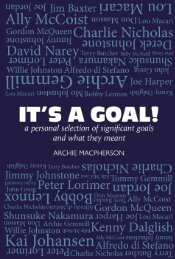Luath Scots Language Learner sampler
This new edition of the Luath Scots Language Learner featuring updated information is suitable as an introductory course or for those interested in reacquainting themselves with the language of childhood and grandparents. There are dictionaries and grammar books but this is the first-ever language course. The book assumes no prior knowledge on the reader's part. Starting from the most basic vocabulary and constructions, the reader is guided step-by-step through Scots vocabulary and the subtleties of grammar and idiom that distinguish Scots from English. An accompanying audio recording conveys the authentic pronunciation, especially important to readers from outside Scotland. The audio recording, which accompanies the Luath Scots Language Learner book, conveys the authentic pronunciation, especially important to readers from outside Scotland. It is suitable as an introductory course or for those interested in reacquainting themselves with the language of childhood and grandparents. There are dictionaries and grammar books but this is the first-ever language course. The book assumes no prior knowledge on the reader's part. Starting from the most basic vocabulary and constructions, the reader is guided step-by-step through Scots vocabulary and the subtleties of grammar and idiom that distinguish Scots from English.
This new edition of the Luath Scots Language Learner featuring updated information is suitable as an introductory course or for those interested in reacquainting themselves with the language of childhood and grandparents. There are dictionaries and grammar books but this is the first-ever language course. The book assumes no prior knowledge on the reader's part. Starting from the most basic vocabulary and constructions, the reader is guided step-by-step through Scots vocabulary and the subtleties of grammar and idiom that distinguish Scots from English. An accompanying audio recording conveys the authentic pronunciation, especially important to readers from outside Scotland.
The audio recording, which accompanies the Luath Scots Language Learner book, conveys the authentic pronunciation, especially important to readers from outside Scotland. It is suitable as an introductory course or for those interested in reacquainting themselves with the language of childhood and grandparents. There are dictionaries and grammar books but this is the first-ever language course. The book assumes no prior knowledge on the reader's part. Starting from the most basic vocabulary and constructions, the reader is guided step-by-step through Scots vocabulary and the subtleties of grammar and idiom that distinguish Scots from English.
- No tags were found...
You also want an ePaper? Increase the reach of your titles
YUMPU automatically turns print PDFs into web optimized ePapers that Google loves.
INTRODUCTION<br />
that, even as late as NVTT, a boy in Dundee was strapped for having<br />
said A dinna ken (‘I don’t know’) to a teacher.<br />
Unsurprisingly, people who normally express themselves in <strong>Scots</strong> will<br />
often, if able, go over to English when with strangers, because not to do<br />
so might be seen as uncouth or ignorant. Any person seeking<br />
employment involving responsibility or dealing with the public, who<br />
uses <strong>Scots</strong> at the interview, will almost certainly not be employed; the<br />
use of <strong>Scots</strong> will be equated with illiteracy, inarticulacy, low<br />
intelligence, or other negative qualities. This usually remains the case<br />
even when an adequate command of English can be demonstrated.<br />
Given the British establishment’s efforts to eradicate <strong>Scots</strong>, it is perhaps<br />
surprising that it continues to be spoken at all. The exact extent to<br />
which it is spoken is difficult to ascertain, as this has not yet been<br />
investigated in the same way as, for instance, for Scottish Gaelic or<br />
Welsh. A preliminary study, which the General Register Office<br />
(Scotland) conducted in NVVS, suggested that around PM% of the<br />
population of Scotland overall used <strong>Scots</strong> to some extent, with that<br />
figure reaching as high as VM% in the North East. However, in<br />
February OMMM the Scottish Parliament voted – in spite of a long<br />
campaign by language activists, supported by academics and local<br />
councils – not to include a question on knowledge of <strong>Scots</strong> in the<br />
Census of OMMN, although as always there was a question on Scottish<br />
Gaelic. More recently, in OMMT, the General Register Office (Scotland)<br />
conducted a public consultation with a view to there being a question<br />
on <strong>Scots</strong> in the Census of OMNN. In OMMV they published Scotland’s<br />
Census OMNN: Recommendations on Content and <strong>Scots</strong> was indeed<br />
addressed by one of the questions in OMNNK<br />
As far as official status is concerned, with effect from July OMMN=the UK<br />
government ratified the European Charter for Regional or Minority<br />
<strong>Language</strong>s. Specifically, it ratified Part P=of the Charter with reference<br />
to Scottish Gaelic, Welsh and Irish and ratified Part O=with reference to<br />
<strong>Scots</strong> and Ulster <strong>Scots</strong>. (Ratification of Part O=also eventually followed<br />
for Manx and Cornish.) Part O=represents a much lower level of status<br />
and protection than Part P=and, even then, it still remained very much<br />
to be seen how far any practical measures would extend beyond mere<br />
lip-service. Since then the Scottish Parliament has issued <strong>Scots</strong><br />
V


















